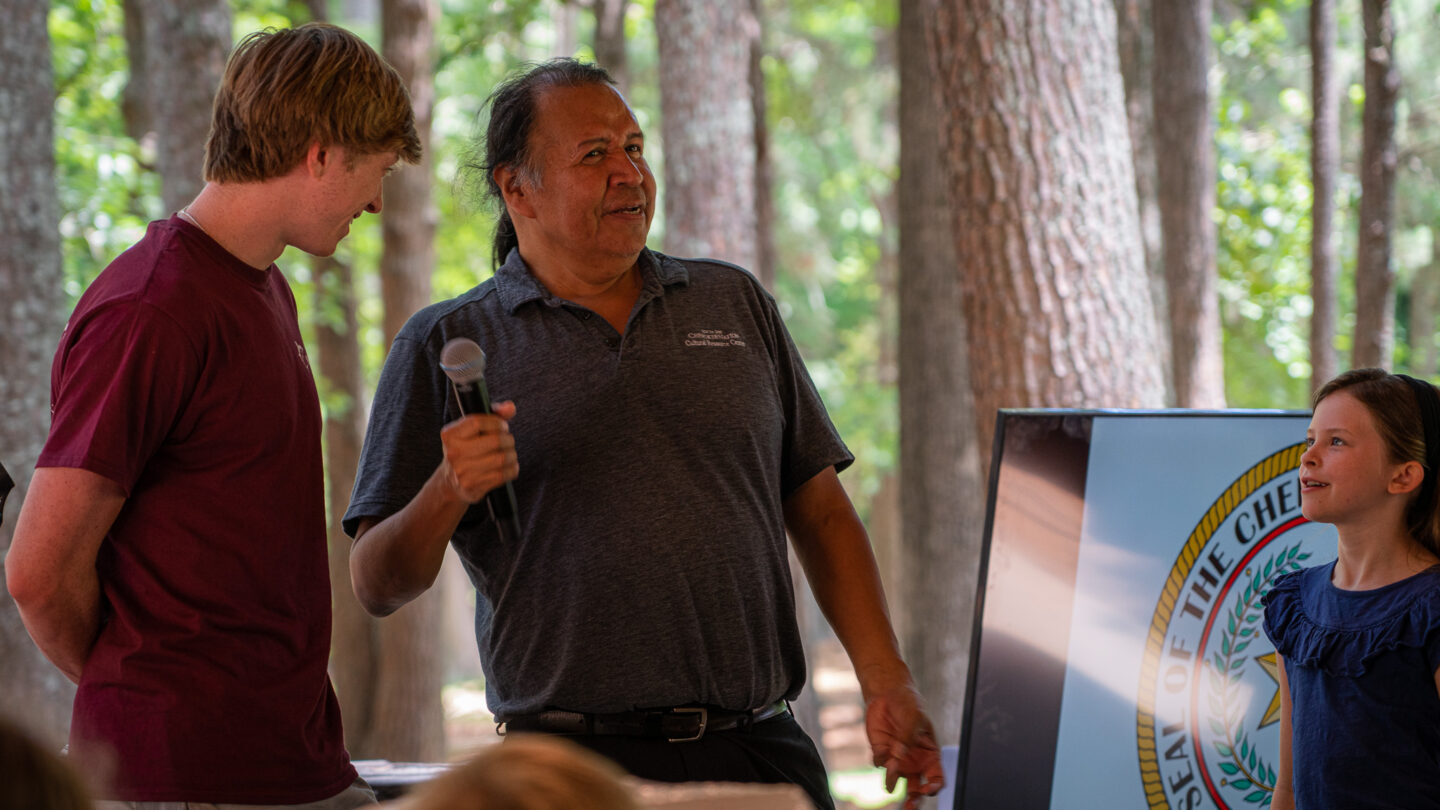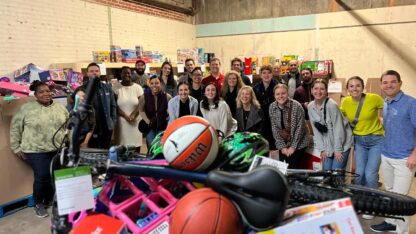About 200 people gathered for the Georgia Cherokee Community Alliance’s at-large Meeting at Laurel Park in Marietta on Saturday.
It was the first in-person meeting for the Cherokee Nation in Georgia since the COVID-19 pandemic began. Attendees got their Cherokee IDs, registered to vote in Cherokee Nation elections, met with the principal Chief and gathered in community with other Cherokee people from the region.
“I think it’s a particularly Cherokee thing to want to be together with extended family.” said principal Chief Chuck Hoskin, Jr. “So one of the things we worked on during COVID was how do we keep connected with people when we have to stay apart from each other?”
Hoskin attributes the large turnout to the increased outreach the Cherokee Nation developed during COVID-19. It launched the Gadugi (Cherokee meaning “working together”) Portal for centralized access to resources for all Cherokee people during COVID.
The Cherokee Nation also shared language and educational videos so people could connect with the culture from anywhere.
This was important for people like Christine Hartman Derr who drove with her family from Knoxville, Tennessee, to the event. She watched language videos with her two kids throughout the pandemic, and wants to ensure her kids know their stories and are proud of their heritage.
“Our ancestors worked so hard to keep our culture,” she said. “They walked so far for us.”
Derr goes to her kids’ school during Native American Heritage month to read Traci Sorell’s “We Are Grateful: Otsaliheliga.” The book shows how people can express daily gratitude to unelanvhi, literally “the one who provides all.”
Cherokee stories are passed down through generations of oral history. Robert Lewis is an award-winning Cherokee storyteller at the meeting who brought members of the audience into his stories. He had them act parts of the stories explaining creation and family ties and say lines. The participation is part of what helps pass these stories along.
“Traditionally, you listened to your grandparents, aunts, uncles, and they would pass down cultural knowledge to you, like which plants to use for medicine, which plants for food,” he said. “These stories, some of them are thousands of years old. And they say you’re still here, just like we’re still here.”









